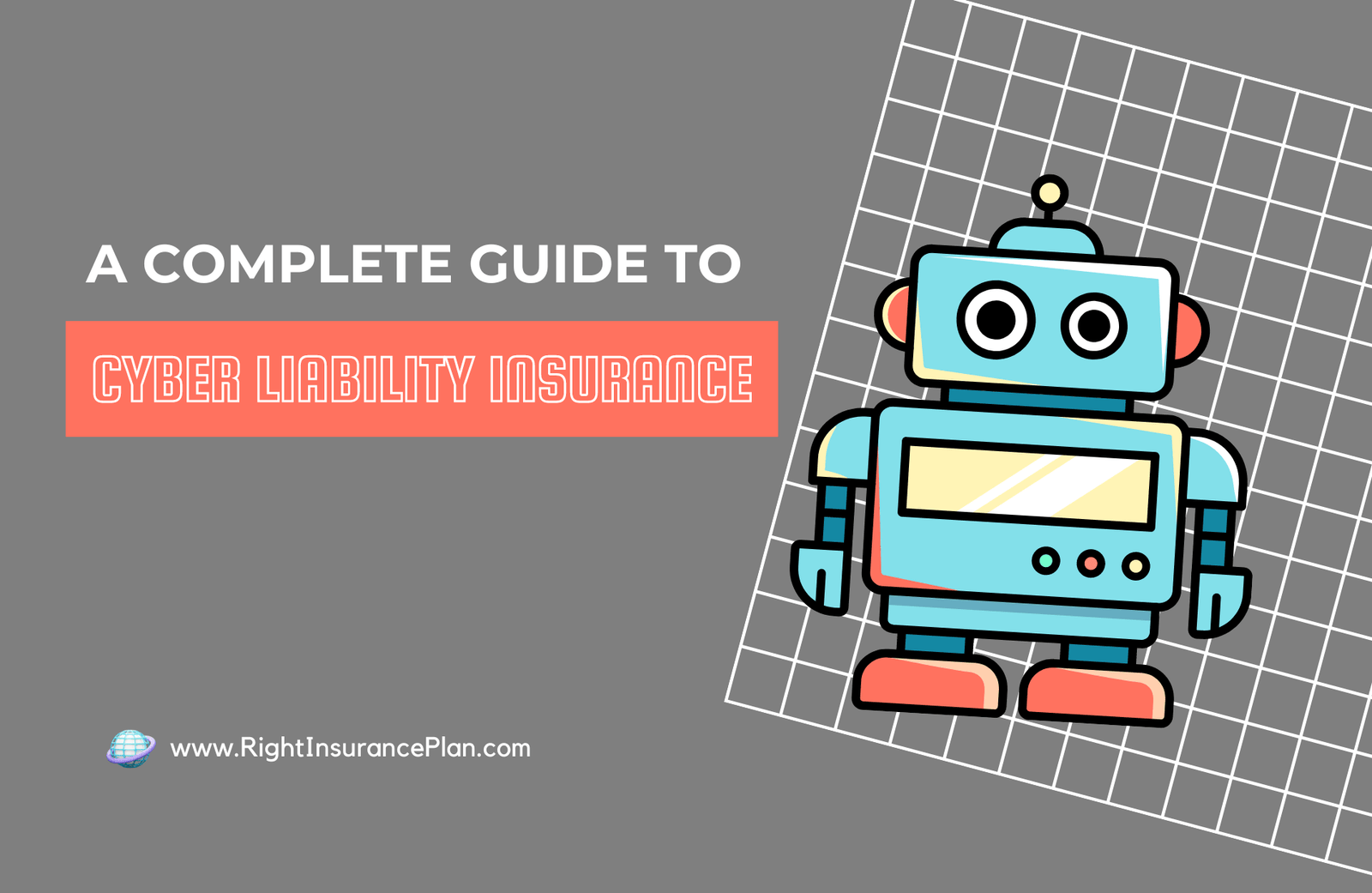
A Complete Guide to Cyber Liability Insurance
In today's interconnected world, businesses and individuals in Canada are increasingly reliant on technology and the internet. While the digital revolution has provided several benefits, it has also introduced new threats and weaknesses. Enter cyber liability insurance – a crucial safeguard for Canadians in the digital age.
What is Cyber Liability Insurance?
Cyber liability insurance is a type of coverage designed to protect businesses and individuals from the financial consequences of cyber-related incidents. These can include data breaches, hacking attacks, ransomware, and other digital threats. In simple terms, it's like having a safety net for your digital life.
The Growing Need for Cyber Protection in Canada
Canada, like many countries, has seen a significant rise in cyber attacks in recent years. According to the Canadian Centre for Cyber Security's National Cyber Threat Assessment 2023-2024, cyber threats continue to evolve and pose significant risks to Canadian organizations, businesses, and individuals.
The report highlights that ransomware remains the most disruptive form of cybercrime facing Canadians. In 2021, about 235 ransomware incidents were reported to the Cyber Centre, affecting Canadian victims across various sectors. This number is likely just the tip of the iceberg, as many incidents go unreported.
Small and medium-sized businesses are particularly vulnerable. A survey by the Canadian Federation of Independent Business (CFIB) found that nearly one in five small businesses had been affected by a cyber attack or fraud attempt. This vulnerability, combined with the potential financial impact of a cyber incident, makes cyber liability insurance increasingly important for Canadian businesses of all sizes.
What Does Cyber Liability Insurance Cover?
Cyber liability insurance in Canada typically covers a range of expenses and losses related to cyber incidents. Here are some key areas of coverage:
1. Data Breach Response: If your business experiences a data breach, the insurance can cover the costs of notifying affected individuals, providing credit monitoring services, and managing public relations to protect your reputation.
2. Legal Expenses: In case of lawsuits resulting from a cyber incident, the insurance can cover legal fees and settlements.
3. Regulatory Fines and Penalties: If you face fines for failing to protect sensitive data, your insurance may cover these costs.
4. Business Interruption: If a cyber attack forces you to halt operations, the insurance can compensate for lost income during the downtime.
5. Cyber Extortion: In cases of ransomware attacks, the insurance can cover the ransom payment (if deemed necessary) and associated costs.
6. Data Recovery: The costs of restoring or recreating lost or damaged data can be covered.
7. Reputation Management: Some policies include coverage for PR efforts to manage reputational damage following a cyber incident.
The Canadian Cyber Insurance Landscape
The cyber insurance market in Canada has been growing rapidly in response to the increasing threat landscape. According to a report by the Insurance Bureau of Canada (IBC), the uptake of cyber insurance among Canadian businesses has been steadily increasing.
However, the market faces challenges. The rising frequency and severity of cyber attacks have led to increased claims, causing some insurers to tighten their underwriting criteria or increase premiums. This trend underscores the importance of robust cybersecurity measures for businesses seeking coverage.
Cost of Cyber Liability Insurance in Canada
The cost of cyber liability insurance can vary widely depending on factors such as the size of your business, the industry you operate in, your annual revenue, and the amount of sensitive data you handle. According to recent data, small businesses in Canada might pay anywhere from $500 to $5,000 annually for a basic cyber insurance policy. Larger businesses or those in high-risk industries could pay significantly more.
It's important to note that while these costs might seem high, they pale in comparison to the potential financial impact of a cyber attack. The IBM Cost of a Data Breach Report 2023 found that the average cost of a data breach in Canada was $6.04 million in 2023, up from $5.64 million in 2022.
Why Canadian Businesses Need Cyber Liability Insurance
1. Financial Protection: Cyber attacks can be extremely costly. Insurance provides a financial safety net, helping businesses recover without facing bankruptcy.
2. Legal Compliance: With data protection laws becoming stricter, having insurance can help businesses meet their legal obligations and avoid hefty fines.
3. Customer Trust: By having insurance, you demonstrate to your customers that you take their data protection seriously.
4. Business Continuity: Insurance can help your business get back on its feet quickly after a cyber incident, minimizing downtime and loss of revenue.
5. Expert Support: Many cyber insurance policies come with access to cybersecurity experts who can help you respond effectively to an incident.
Recent Trends in Canadian Cyber Insurance
1. Increased Demand: The COVID-19 pandemic accelerated digital transformation, leading to increased awareness of cyber risks and demand for cyber insurance.
2. Rising Premiums: Due to the increasing frequency and severity of cyber attacks, many insurers have raised their premiums.
3. Stricter Underwriting: Insurers are becoming more selective, often requiring businesses to have certain cybersecurity measures in place before providing coverage.
4. Focus on Prevention: Many insurers are now offering risk assessment and prevention services as part of their cyber insurance packages.
5. Expansion of Coverage: Some policies now include coverage for emerging threats like social engineering fraud and cryptocurrency theft.
Choosing the Right Cyber Liability Insurance
1. Assess Your Risks: Understand what kind of data you handle and what your specific vulnerabilities are.
2. Compare Policies: Look at offerings from different insurers and compare their coverage, limits, and exclusions.
3. Check for Additional Services: Some policies offer cybersecurity training or incident response planning.
4. Consider Your Budget: Balance the cost of the premium against the level of coverage you need.
5. Read the Fine Print: Make sure you understand what is and isn't covered under the policy.
6. Consult an Expert: If you're unsure, consider talking to an insurance broker who specializes in cyber insurance.
The Future of Cyber Liability Insurance in Canada
1. More Tailored Policies: Insurers may offer more industry-specific or risk-specific policies.
2. Integration with Cybersecurity Services: Insurance may increasingly be bundled with cybersecurity tools and services.
3. Use of AI and Machine Learning: These technologies may be used to better assess risks and price policies.
4. Focus on Small Businesses: As awareness grows, more small businesses are likely to seek cyber insurance.
5. Regulatory Changes: New data protection laws may drive changes in cyber insurance requirements and offerings.
In conclusion, cyber liability insurance is becoming an essential part of risk management for Canadian businesses and individuals. As our digital footprint grows, so does our exposure to cyber risks. While the cost of cyber insurance may seem high, it's a small price to pay for the peace of mind and financial protection it offers.
You can also check the information regarding Commercial Property Insurance in Canada
FAQs:
1. Who needs cyber liability insurance?
Any business or individual that uses technology to store, process, or transmit data should consider cyber liability insurance. This includes small businesses, large corporations, and even freelancers.
2. What's the difference between first-party and third-party cyber insurance?
First-party coverage protects you against direct losses you might suffer from a cyber incident. Third-party coverage protects you against claims made by others (like clients or customers) affected by a breach of your systems.
3. Does your general liability insurance cover cyber risks?
Generally, no. Most standard business insurance policies don't cover cyber risks, which is why specific cyber liability insurance is necessary.
4. How much does cyber liability insurance cost in Canada?
Costs vary widely depending on factors like business size, industry, and coverage limits. Small businesses might pay anywhere from $500 to $5,000 annually, while larger businesses could pay significantly more.
5. What factors affect the cost of cyber insurance?
Factors include your business size, industry, revenue, amount and type of data you handle, your cybersecurity measures, and your claims history.
6. Is cyber insurance mandatory in Canada?
While not legally required, some contracts or industry regulations might require businesses to have cyber insurance.
7. What's typically not covered by cyber insurance?
Common exclusions include future lost profits, reputational damage, and the cost of improving your IT systems after an attack.
8. Can individuals get cyber insurance?
Yes, some insurers offer personal cyber insurance policies to protect individuals from risks like identity theft and cyber extortion.
9. How does cyber insurance handle ransomware attacks?
Many policies cover ransom payments and associated costs, but coverage and conditions can vary significantly between policies.


